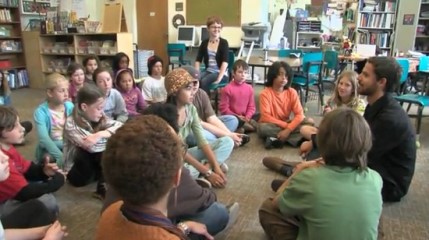Posts Tagged ‘Mindfulness-Based-Stress-Reduction’
Top 10 recent scientific studies on the value of mindfulness in education
— More and more studies are showing the potential benefits of mindfulness practices for students –to improve physical health, psychological well-being, social skills, even academic performance in some cases– as well as for teachers and administrators –primarily to reduce stress and burnout–. To give you an update on the landscape of scientific research about the role…
Read MoreUnder what conditions can mindfulness courses help health care workers manage stress and burnout?
Medical professionals are burdened daily with the pain and suffering of patients. Many work long hours, and regularly face stressful situations. This burden does not come without consequence: 60 percent of physicians report having experienced burnout at some point in their careers. Mindfulness courses designed to help health care workers
Read MoreMeditation can Change the Structure of the Brain
(Editor’s Note: We are pleased to bring you this article by Jason Marsh, thanks to our collaboration with the Greater Good Magazine.) . I consider myself something of a prospective meditator—meaning that a serious meditation practice is always something I’m about to start… next week. So for years, I’ve been making a mental note of…
Read MoreMeditation on the Brain: a Conversation with Andrew Newberg
Dr. Andrew Newberg is an Associate Professor in the Department of Radiology and Psychiatry and Adjunct Assistant Professor in the Department of Religious Studies at the University of Pennsylvania. He has published a variety of neuroimaging studies related to aging and dementia. He has also researched the neurophysiological correlates of meditation, prayer, and how brain…
Read MoreMindfulness and Meditation in Schools: Mindful Kids, Peaceful Schools
Mindfulness and Meditation are good technique for school children to manage anxiety and stress. Read another article from Greater Good Magazine on brain development.
Read MoreFrom Meditation to MBSR
Very nice Los Angeles Times article on the growing research behind, and acceptance of, meditation in mainstream medicine (through what is called Mindfulness-Based Stress Reduction, or MBSR): Doctor’s orders: Cross your legs and say ‘Om’. A few quotes: — “It appears to work. In a new study, published in October in the journal Pain, Natalia…
Read More


